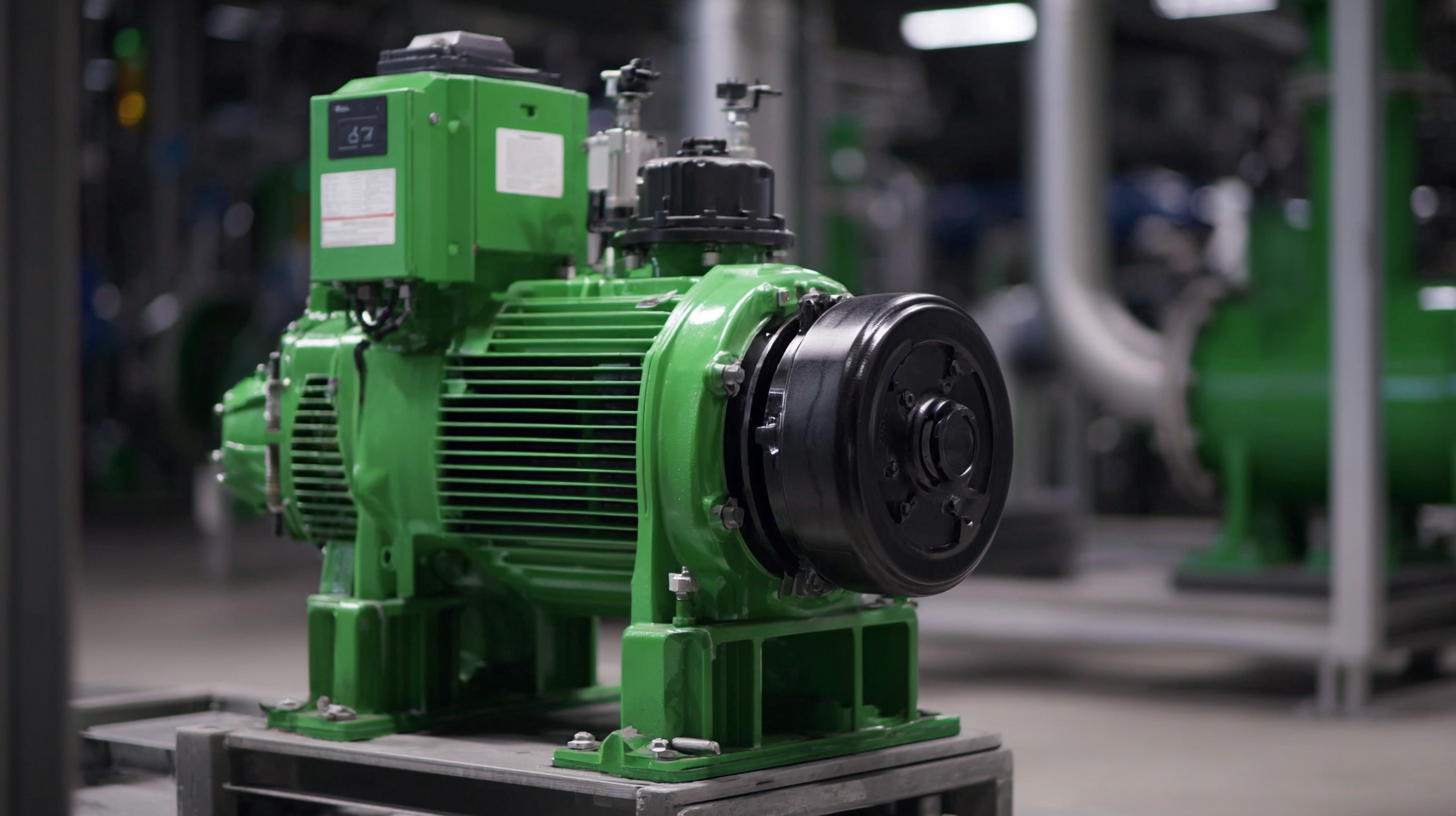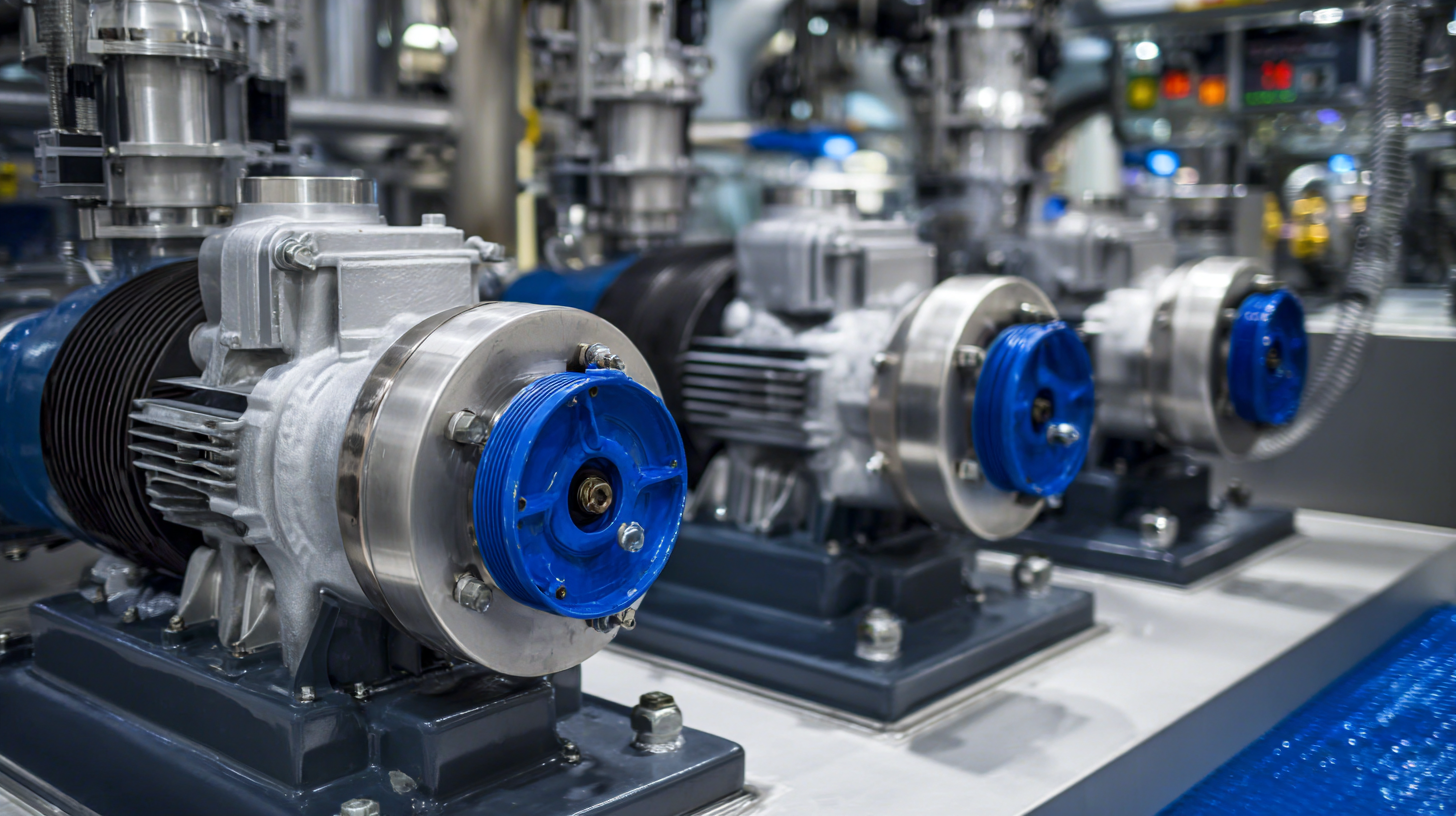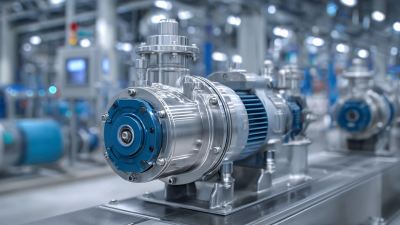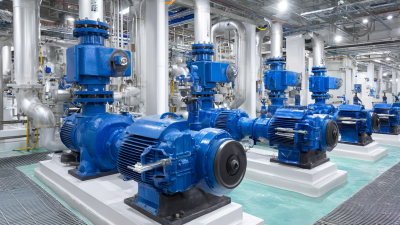Sealless Pumps for a Safer and Greener World


In the realm of modern fluid management, magnetic drive pumps have emerged as pivotal assets, offering significant advantages over conventional pumping systems. According to a recent report by Research and Markets, the global magnetic drive pump market is projected to reach $3.1 billion by 2025, reflecting a compound annual growth rate (CAGR) of 5.7% from 2020. This growth is driven by increasing demands for efficiency, reliability, and safety in diverse industries, such as chemicals, pharmaceuticals, and food processing. Magnetic drive pumps are renowned for their ability to prevent leakage, thereby ensuring a safer working environment and reducing maintenance costs. Furthermore, their robust design minimizes wear and tear, leading to longer operational lifetimes. As industries continue to prioritize sustainability and cost-effectiveness, understanding the myriad advantages offered by magnetic drive pumps becomes essential for optimizing fluid management practices.

Magnetic drive pumps have gained significant traction in modern fluid management due to their unique capabilities that promote efficient fluid transfer. Unlike traditional pumps, magnetic drive pumps utilize a magnetic field to transfer torque from the motor to the impeller, eliminating the need for mechanical seals. This design not only reduces the risk of leaks but also enhances operational safety, making them ideal for handling hazardous materials.
**Tips:** When selecting a magnetic drive pump, consider the viscosity of the fluid you'll be transferring. High-viscosity fluids may require specialized impeller designs for optimal efficiency. Additionally, ensure that the materials used in the pump construction are compatible with the fluid to prevent corrosion and extend the lifespan of the equipment.
Another advantage of magnetic drive pumps is their ability to operate quietly and with minimal vibrations. This makes them suitable for environments where noise reduction is critical, such as in laboratories and healthcare facilities. The simplicity of their design also results in lower maintenance requirements, further enhancing productivity and reducing downtime.
**Tips:** Regularly inspect the pump system for any signs of wear or damage, especially if operating under challenging conditions. Implementing a routine maintenance schedule can help identify potential issues early and prevent costly repairs.

Magnetic drive pumps represent a significant advancement in fluid management technology, particularly in enhancing safety. Unlike traditional pumps that rely on mechanical seals to prevent leakage, magnetic drive pumps utilize a magnetic coupling that completely isolates the pump's internal components from the external environment. This critical design feature eliminates the risk of fluid leakage, thus mitigating the potential for spills and contamination. As a result, industries handling hazardous or corrosive substances can operate with greater confidence, knowing that their processes are safer and more reliable.
Moreover, the absence of mechanical seals in magnetic drive pumps reduces wear and tear, leading to lower maintenance requirements and extended operational lifespans. This not only improves safety by minimizing the chances of seal failure but also enhances overall efficiency in fluid management systems. By significantly decreasing the need for frequent repairs and maintenance, magnetic drive technology contributes to a safer working environment, allowing operators to focus on their tasks without the constant worry of equipment malfunction or environmental hazards. In sum, the integration of magnetic drive pumps into fluid management processes represents a proactive approach to workplace safety and environmental protection.
This chart illustrates the key advantages of magnetic drive pumps in fluid management, highlighting their superior safety and efficiency while comparing other factors like maintenance cost, environmental impact, and noise level.
Magnetic drive pumps have emerged as a pivotal technology in modern fluid management, primarily due to their energy efficiency and cost-saving capabilities. As the global energy-efficient motor market is expected to expand significantly in the coming years, the advantages of using magnetic drive pumps align perfectly with industry trends focused on sustainability and reduced operational costs. These pumps minimize energy waste by effectively transferring power without fluid leaks, ultimately leading to lower energy consumption and decreased utility bills for businesses.
Moreover, the integration of Internet of Things (IoT) and Industry 4.0 technologies is revolutionizing the functioning of pumps across various sectors, including water management and manufacturing. These advancements allow for real-time monitoring and optimization of pump systems, contributing to further energy savings. For instance, modern irrigation systems equipped with energy-efficient pumps can reduce water usage significantly while enhancing crop productivity, proving essential for sustainable agricultural practices. The combination of cutting-edge technology and magnetic drive pumps underscores a commitment to energy conservation and economic efficiency across industries.
Magnetic drive pumps, also known as magnetically coupled pumps, have become increasingly important in various industries due to their unique design that eliminates the need for mechanical seals. This feature makes them particularly beneficial in applications involving hazardous or corrosive fluids, such as in the chemical processing and petrochemical industries. The absence of leaks not only enhances safety but also reduces the risk of environmental contamination, making these pumps a preferred choice for fluid management.
In the pharmaceutical and food and beverage sectors, magnetic drive pumps are favored for their hygienic properties and ability to maintain product integrity. Their design allows for continuous operation with minimal maintenance, ensuring that production processes remain efficient and compliant with industry regulations. Additionally, in water treatment facilities, these pumps prove effective due to their ability to handle varying fluid flows without compromising performance, thus supporting sustainable practices in liquid management.
| Industry | Application | Advantages of Magnetic Drive Pumps |
|---|---|---|
| Chemical Manufacturing | Transfer of corrosive liquids | Leak-proof operation, enhanced safety |
| Pharmaceuticals | Pumping of sterile liquids | Prevention of contamination, reliability |
| Food and Beverage | Circulation of food-grade liquids | Compliance with hygiene standards, efficiency |
| Water Treatment | Transfer of wastewater and chemicals | Durability, minimal maintenance |
| Petrochemical | Transportation of toxic substances | Safety in hazardous operations, reduced risk of spills |
When selecting the right magnetic drive pump for your specific needs, it's important to consider the application and fluid characteristics. Magnetic drive pumps are particularly advantageous in scenarios where leak prevention is critical. According to a report by the Hydraulic Institute, nearly 30% of pump failures can be attributed to mechanical seal issues, making these pumps an attractive alternative due to their seal-less design. This not only reduces maintenance costs but also enhances safety in handling hazardous fluids, which is essential in industries such as chemicals and pharmaceuticals.

Another key factor in your selection process is the compatibility of the pump material with the fluid being handled. Many magnetic drive pumps are available with various materials, including thermoplastics and stainless steel, allowing for optimal performance with corrosive or abrasive liquids. Industry data from Research and Markets projects a growth of approximately 6% in the magnetic drive pump market over the next five years, indicating industry recognition of their reliability and versatility. Evaluating the fluid's viscosity and temperature range is also crucial, as these factors affect the pump's efficiency and lifespan. By taking these considerations into account, you can ensure that your magnetic drive pump will meet your operational requirements effectively.





